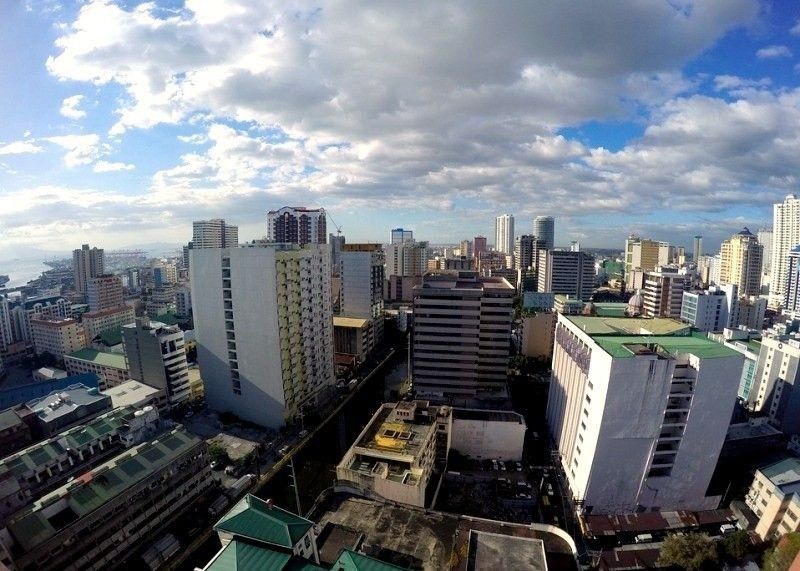Economists see slower Q1 economic growth

MANILA, Philippines — The country’s gross domestic product (GDP) growth likely slowed in the first quarter primarily due to the delayed passage of the 2019 national budget, according to economists.
ING Bank Manila economist Nicholas Mapa said the country’s economic expansion likely fell below six percent in the first quarter as more and more signs point to a weak first quarter GDP performance.
Mapa said national government planners have released their assessment of the impact of the budget on growth, which is seen to sap 0.5-0.9 percentage points from the GDP growth in the first quarter.
“Meanwhile, other indicators point to slowing growth momentum as well, with the latest trade numbers just another indicator hinting that growth momentum is fading. Inflation continues to slide, even as the Rice Tariffication Law is about to kick in, all this despite the rapid acceleration in oil prices,” Mapa said.
Meanwhile, Mapa said the national government appears to have learned its lesson from 2018, importing food stuffs ahead of the El Niño drought while also building up the rice buffer stock of the National Food Authority (NFA) to augment supplies.
Noelan Arbis, economists at British banking giant HSBC, said economic expansion likely fell below six percent at 5.9 percent in the first quarter that is why the Bangko Sentral ng Pilipinas (BSP) should put a greater emphasis on growth rather than inflation.
“We expect GDP growth to slow to 5.9 percent year-on-year in the first quarter given a prolonged impasse on passing the 2019 fiscal budget, higher bank lending rates, low domestic market liquidity, and tepid remittances growth,” Arbis said.
Arbis also cited liquidity growth is at its lowest level in over 10 years, while bank lending growth is also at its lowest in over nine years.
“These should all cumulate to lower GDP growth for at least the first quarter of the year, by way of slower government spending, fixed investment, and private consumption,” Arbis said.
Security Bank chief economist Robert Dan Roces said the country’s GDP growth would range between 6.2 and 6.5 percent for the first quarter due to the lag effects from inflation, foreign exchange events, and government spending.
“Our nowcast model projects a growth rate of 6.3 percent for the first quarter of 2019,” Roces said.
Roces said GDP growth may pick up in the second and third quarters as the National Economic and Development Authority (NEDA) steps up the government’s massive infrastructure build up.
“We see stronger growth coming into the mid-second quarter and third quarter as domestic consumption picks up on the back of tapering inflation base. Government spending will also pick up post-budget signing, as the NEDA pushes for an acceleration in infrastructure spending as it plays catch up on first quarter delays,” Roces said.
Socioeconomic Planning Secretary Ernesto Pernia had said economic growth in the first quarter likely settled within the lower end of the government’s revised six to seven percent growth target this year.
“Perhaps more on the lower end because we operated on a reenacted budget for four months, a third of the year. But maybe above six percent growth,” Pernia said.
Pernia said despite the delay in spending for government projects and programs, the economy also received a boost from increased household spending as inflation cools, as well as consumption related to the upcoming elections.
“Lower inflation motivated more spending of households and there is also election-related spending,” he said.
With the signing of the 2019 national budget in April after a long impasse, Pernia said growth could be expected to pick up faster in the second and third quarter of the year as the dry weather would enable more projects to progress, hence accelerating spending.
Meanwhile, economic growth in the first quarter of the year likely slowed sharply to 5.4 percent but with hopes of a strong rebound in the second quarter of the year, said London-based Capital Economics.
“Overall, we estimate that growth slowed to 5.4 percent year-on-year last quarter. With the 2019 budget finally passed in mid-April, growth should rebound this quarter,” said the macroeconomy research firm in a research brief issued over the weekend.
Capital Economics said this is mainly because the government operated on a re-enacted 2018 budget in the first quarter of the year due to delays passage.
As a result government spending fell by over percent quarter-on-quarter in seasonally-adjusted terms in the first quarter, the most since 2013.
“Monthly data suggest other parts of the economy slowed too. Industrial production contracted by an average of 2.5 percent year-on-year in January and February, compared to a 1.1 percent contraction in the fourth quarter (of 2018),” said Capital Economics.
A slowdown in import growth is likely to have limited the economic slowdown in the first three months of the year.
“As infrastructure building has been delayed due to the budget impasse, the growth in imports of capital goods and raw materials have fallen back sharply,” said the firm.
The Philippine Statistics Authority (PSA) is announcing the first quarter economic growth figures on May 9, the same day the Monetary Board will convene.
Capital Economics said weak growth in the first quarter combined with cooling inflation will prompt the Bangko Sentral ng Pilipinas (BSP) to cut rates on Thursday.
“With inflation likely to continue falling back and growth set to disappoint this year, we expect more cuts in 2019. We have pencilled in one additional cut, but the risks are weighted towards more,” the firm said.
PSA is announcing the April inflation figures on May 7. Capital Economics expects the headline rate to have fallen further to 2.9 percent in April from 3.3 percent in March because of the sustained fall in rice prices.
- Latest
- Trending



























